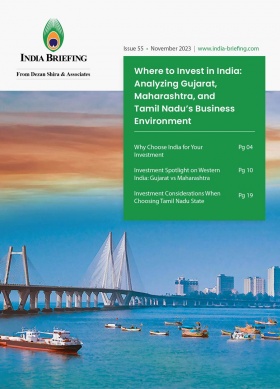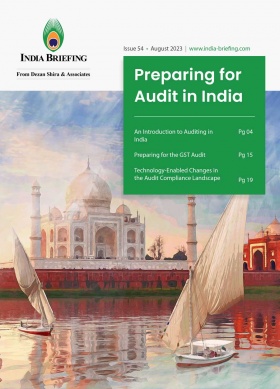Status of India’s Digital Competition Law
The Corporate Affairs Ministry (MCA) on November 7, 2023 extended the term of the 16-member Committee on Digital Competition Law (CDCL) up to December 31, 2023. Following a report of the Parliamentary Standing Committee on Finance that had recommended a Digital Competition Act, the MCA had set up the CDCL to examine the need for an ex-ante regulatory mechanism for digital firms.
At the end of its term, the CDCL panel will have to submit its report to the government, including a draft Digital Competition Act (DCA).
Meanwhile, the Competition Commission of India (CCI) has set up a Digital Markets Unit to look into antitrust practices by technology firms.
Key focus areas
The panel is reviewing whether existing provisions in the Competition Act and the Rules and Regulations framed under it are sufficient to deal with the challenges that have emerged from the digital economy.
Based on the recommendations of the CDCL, the Government of India will have to figure out if it would want a separate digital competition law under a ‘whole of government approach’.
India is contemplating the enactment of a digital competition legislation at a time when there is growing concern among policymakers around the world about the power and dominance of technology giants in the digital economy, and the need to ensure a level playing field for all players in the market.
On December 8, the UK’s antitrust regulator announced its intention to assess whether to initiate a merger investigation into Microsoft’s multi-billion dollar partnership with OpenAI. This decision follows OpenAI’s disclosure that Microsoft would hold a non-voting board seat in the collaboration. This marks the regulator’s second examination of the U.S. software giant’s activities this year. Additionally, the authority stated that it is evaluating whether the agreement has led to the establishment of a pertinent merger scenario.
Background
The CDCL inter-ministerial committee, which is now chaired by MCA Secretary Manoj Govil, was set up on February 6, 2023, and tasked to finalise its report and frame a draft for the proposed law in three months. However, the committee overshot the initial time allocated and the panel’s tenure has been extended several times since May 6, 2023.
The committee had been exploring the possibility of establishing criteria for identifying systematically important intermediaries and preventing them from exploiting data for their advantage. Additionally, the committee considered imposing at least 10 obligations, including those related to interoperability and anti-steering, on the Big Tech companies. However, the committee’s progress appears to have encountered obstacles at present.
With India slated to go for general elections sometime in April-May next year, the delay has led to a scenario where the present government may not be able to complete the legislative process before the model code of conduct kicks in.
Expert opinions: Regulation of a rapidly growing digital economy
India’s digital economy—which has been growing at frenetic pace in the last decade—is set to surpass the US$1-trillion mark in 2025-26.
Competition law experts are still divided on whether India needs a separate digital competition law or not. Some still contend that it would be premature for India to go in for an ex-ante framework through a separate law to prevent anti-competitive conduct of Big Tech in digital markets. Due to this discord among law experts, a definite direction for the Bill has been difficult to come by.
Indications are that even if the government were to finally go ahead and enact a digital competition law, the proposed framework is unlikely to be entirely patterned on the Digital Markets Act (DMA) enacted by the European Union (EU). This is significant as there has been wide speculation that India’s proposed digital competition law will be based on DMA. The change that is being reported now is due to legal experts’ reservations about the applicability of EU provisions to India. This is founded on concerns of stark differences in the internet penetration levels, market preferences, and overall development stages of India and the EU.
Possible impact and discussion around need for ex-ante law
India’s current regulatory structure for competition issues follows the ‘ex-post’ approach, meaning that the regulator, the Competition Commission of India, can only take action against an entity once anti-competitive practice has been established. However, under the ‘ex-ante’ framework, companies will have to put in place mechanisms to prevent any abusive anti-competitive practices.
Start-ups in India are still pinning their hopes on the government putting in place an ex-ante framework for addressing the anti-competitive conduct of Big Tech in a pre-emptive way that would give them a level-playing field.
Even digital news publishers—who have been getting a raw deal from Big Tech on revenue sharing for digital news content—are relying on the enactment of an ex-ante framework to strengthen their hands and enhance their revenues.
Antitrust case on Google in India
In March 2023, the National Company Law Appellate Tribunal (NCLAT) upheld the Competition Commission of India’s (CCI) INR 13.3776 billion penalty on Google for antitrust violations while largely confirming its findings from October 2022 that said Google abused its market dominance in the Android ecosystem. It held that mandating pre-installation of its entire Google Mobile Suite (GMS)—a family of key Google apps and services such as Google search, Chrome browser, YouTube, Google Maps, and Gmail—amounted to “imposing unfair conditions on OEMs which is an abuse of dominant position” by the company.
Google has filed an appeal in the Supreme Court of India (SCI) against the verdict by the NCLAT. Google’s appeal came on the heels of the CCI’s appeal to the same NCLAT order in the SCI. The SCI has announced that it would hear appeals against the NCLAT order in January 2024.
The contest between Google and CCI is among the most high-profile battles globally between a tech giant and a regulator, one that is being followed closely by governments across the world. About 97 percent of the 600 million smartphones in India run on Android, according to Counterpoint Research estimates.
Major ongoing antitrust cases against big tech
This chart lists every major antitrust case filed against Alphabet, Google, Facebook, Amazon, and Microsoft last year, many of which are ongoing.
|
S. No. |
Company |
Regulatory body |
Allegations |
Present status |
|
1. |
Alphabet |
National Commission for Information Technology and Freedom (CNIL), France |
Accused of making it difficult for users to refuse to be tracked by cookies. |
French regulators fined Google a record US$169 million |
|
2. |
Alphabet |
Federal Cartel Office, Germany |
Accused Google’s business of meeting the threshold for special abuse control. |
Agreement ending the investigation reached in October 2023, Google to revamp its user data practices |
|
3. |
Alphabet |
Texas state attorney, USA |
Accused of collecting biometric data without consent. |
Lawsuit filed |
|
4. |
Alphabet |
Federal Economic Competition Commission (Cofece), Mexico |
Alphabet accused of abusing its dominant market position to engage in anti-competitive behaviour. |
In litigation |
|
5. |
Alphabet |
Department of Justice and Eight States Attorneys, USA |
Accused of abusing its monopoly power in digital advertising to disadvantage competitors. |
In litigation |
|
6. |
Amazon |
Federal Trade Commission and 17 States, USA |
Allegations of abuse of position by Amazon in the marketplace to inflate prices on and off its platform, overcharge sellers and stifle competition |
Lawsuit filed |
|
7. |
Amazon |
Competition and Markets Authority, UK |
Accused of using a “secretive” algorithm to abuse its dominant position in the online marketplace. |
Class-action lawsuit filed with potential fine of up to US$1.26 billion |
|
8. |
Amazon |
Securities and Exchanges Commission, USA |
Scrutiny of how it uses third-party data for private-label business. |
Investigation ongoing |
|
9. |
Apple |
Netherlands Competition Authority, The Netherlands |
Accused of breaking competition law over App Store fees. |
Apple initially fined US$53 million, then settled with the regulator |
|
10. |
Apple |
European Commission, EU |
Accused of restricting rival’s access to NFC chip technology for mobile payments. |
Investigation ongoing |
|
11. |
Apple |
Competition and Markets Authority, UK |
An investigation into dominance of Apple’s mobile browser Safari. |
Apple wins appeal against the Authority’s investigation |
|
12. |
Apple |
European Commission, EU |
An antitrust investigation triggered by a complaint by Spotify. |
Investigation ongoing |
|
13. |
Apple |
Administrative Council for Economic Defense (CADE), Brazil |
Accused of abusing dominant market position in their mobile app store. |
Investigation ongoing |
|
14. |
Meta |
Federal Trade Commission, USA |
Meta’s acquisition of the virtual reality start-up Within constitutes anti-competitive practices. |
Court allows acquisition, FTC dismisses pursuing case further |
|
15. |
Microsoft |
European Commission, EU |
Scrutiny into its practices in a case triggered by Salesforce.com’s workspace messaging app Slack. |
Investigation ongoing |
|
16. |
Microsoft |
Federal Trade Commission, USA |
Accused of monopolizing the video game market by acquiring Blizzard-Activision. |
Ruling in favor of Microsoft, pending FTC’s appeal |
Source: Quartz, Bloomberg, Reuters, Associated Press
About Us
India Briefing is produced by Dezan Shira & Associates. The firm assists foreign investors throughout Asia from offices across the world, including in Delhi and Mumbai. Readers may write to india@dezshira.com for more support on doing business in India.
We also maintain offices or have alliance partners assisting foreign investors in Indonesia, Singapore, Vietnam, Philippines, Malaysia, Thailand, Italy, Germany, and the United States, in addition to practices in Bangladesh and Russia.
- Previous Article India Holds Auction for 20 Blocks of Critical Minerals, Including Lithium and Graphite
- Next Article Dell, HP, Foxconn, Lenovo Among 27 Beneficiaries Under India’s PLI 2.0 Scheme for IT Hardware









